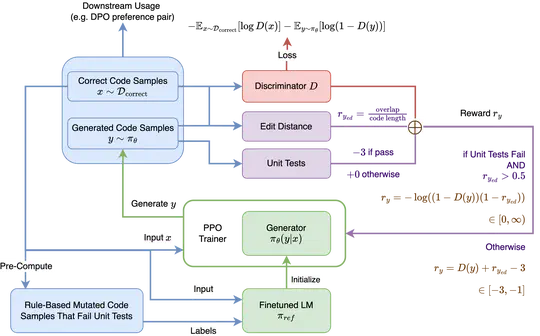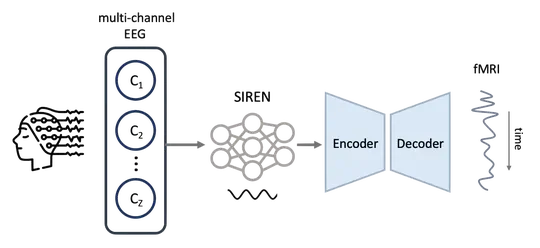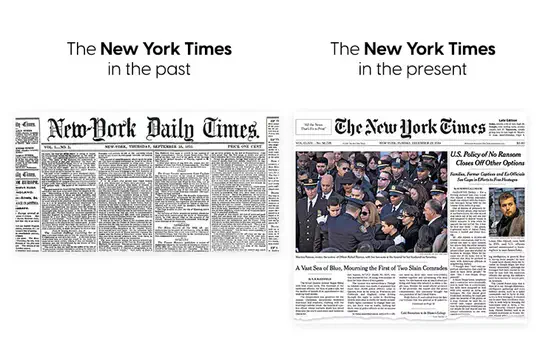Jiliang Li (Preferred Name: Eric, 中文:李济良) is a second-year master’s student in computer science at Stanford University. He is a researcher as well as a full-stack developer.
His research interest lies at the intersection of Machine Learning, Software Engineering, and Security. Most recently, he worked on AI cybersecurity agent benchmarking at SAIL. Before Stanford, he worked with Prof. Yu Huang and Prof. Kevin Leach at Vanderbilt University on AI for Software Engineering (AI4SE) and LLMs for code (LLM4Code).
As a full-stack developer, he is most proficient with the React ecosystem, integrated with versatile backends. He has previously worked as a software engineer intern at Meta and Wave Dynamics Inc., where he developed full-stack products across messaging, ads, and ticketing at scale.
- Artificial Intelligence for Software Engineering (AI4SE)
- LLM4Code
- Full-Stack Web Development
M.S. in Computer Science, 2026
Stanford University
B.S. in Computer Science and Mathematics, 2024
Vanderbilt University
A Two-Fold Adventure
NLP, Graph ML, AI for Programming Languages (LLM4Code), Human-Centered AI
Binary Code Analysis, Program Analysis, Code Comprehension, CS Education
React.js, Next.js, Node.js, REST API, Flask, Spring, Firebase, SQL, AWS, Git/GitHub
Android Studio
Experience
Designed and launched 7 features for Meta Business Messaging, connecting advertisers and customers via WhatsApp.
- Implemented ad creation and messaging functionalities, including multi-WhatsApp-number chat support, ad format previews, advertiser options defaulting, WhatsApp input expansion in new bid workflows, ad delivery matcher updates, and more.
- Built full-stack web and mobile solutions using React.js, Relay, and GraphQL, and backend queries and services in Hack.
- Owned product lifecycles end-to-end by driving cross-functional design, collaboration, and experimental analysis.
- Led product decisions on features reaching 300K+ total advertisers.
Developed BountyBench, a cybersecurity bug bounty benchmark for AI agents (Principal Investigator: Percy Liang).
- Introduced the benchmark featuring 25 systems from complex, real-world codebases, and 40 bug bounties covering 9 of the OWASP Top 10 Risks, to assess LLM agents’ ability to exploit and patch security vulnerabilities.
- Built an automated verification pipeline to validate LLM-generated patches that preserve invariant functionalities in code.
- Designed end-to-end LLM agents capable of real-world security tasks, optimized with prompting, memories, and reflection.
Designed and developed the Wave Dashboard:
- Developed a full-stack ticket sales management dashboard generating $120,000+ monthly revenue using Next.js and Node.js.
- Created key features such as event-editing and real-time ticket tracking, leveraging Firebase, Google OAuth, and Cloud Run for scalable data storage, retrieval, and access management.
Supervised by Prof. Yu Huang and Prof. Kevin Leach:
- Reinforcement Learning for LLMs for Code: Generating negative code samples using RL with compiler-in-the-loop. More details coming up soon.
- Few-shot Malware Classification: Designed a semi-supervised malware classifier, pioneering efficient & semantics-aware malware data augmentation through information retrieval, invariance learning, and alignment techniques. The classifier achieved SOTA results with 5.60% improvement in few-shot settings and 11.44% improvement under concept-drift.
- Merging Human & Transformer Attention: Implemented a Transformer-based NLP model whose self-attention weights are refined using human attention data captured through eye-tracking. The model is applied to neural code summarization tasks with a 29.91% performance improvement, showcasing the potential of integrating human attention into neural models.
- LLM Feature Attribution Analysis: Comprehensively evaluated feature attribution in six LLMs (GPT, Llama 2, StarCoder, etc.) in code summarization through Shapley-value analysis; compared against human eye-tracking attention patterns.
Supervised by Prof. Lingming Zhang:
- Designed a universal LLM-based fuzzer targeting compilers of any programming language, with LLM-mutated code inputs integrated in the fuzzing loop; tested on 7 languages with significantly improved coverage and uncovered 76 new bugs.
- Specialized in JIT vulnerabilities within the V8 JavaScript engine; refined fuzz testing algorithms for targeted exploitation; offered expertise in instrumentation, auto-prompting, and compiler and systems programming for vulnerability pinpointing.
Post-Investment Management Team:
- Worked on the post-investment team to eliminate future manual processing of three portfolio companies’ operational data.
- Implemented a full-stack web service in React JS, Flask, and MySQL for robust client data catalog collection and storage.
- Automated the conversion of raw operational data into financial statements using OpenPyXL, Pandas, NumPy, and Seaborn.
- Built an interactive sales performance visualization interface using D3 for real-time strategic insights.
Publications
Projects
Teaching
(CS4278)(CS1101)Contact
- ericlij [-at-] stanford [-dot-] edu







